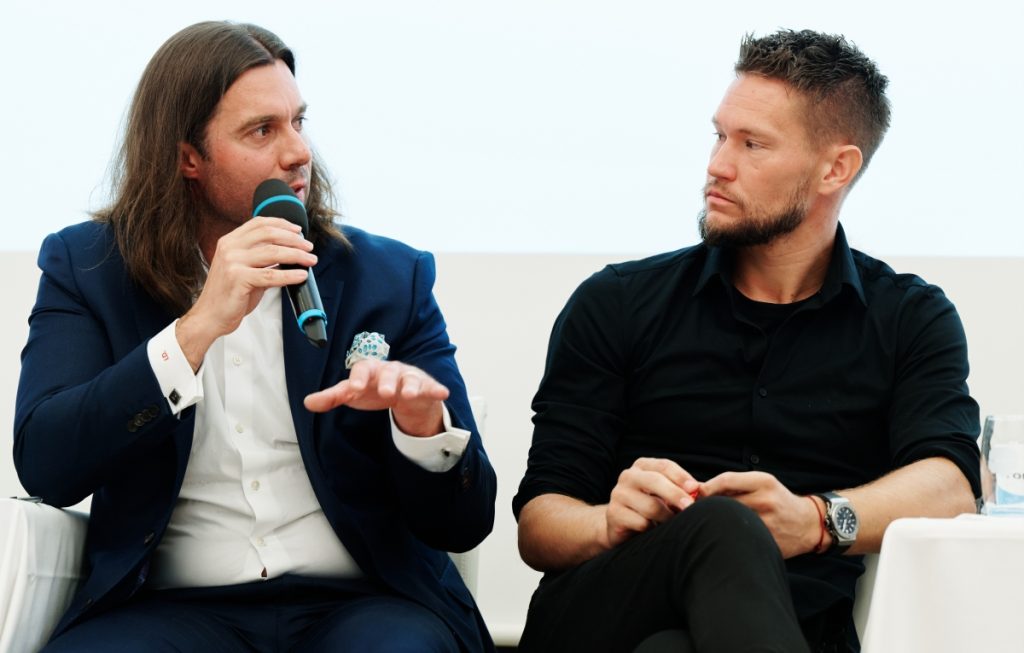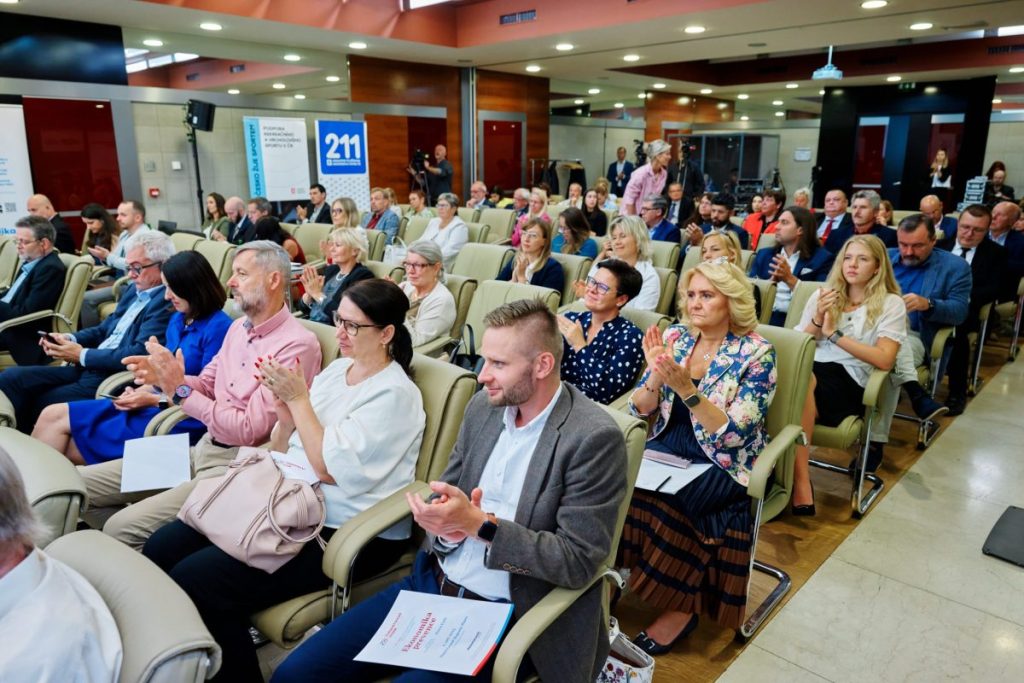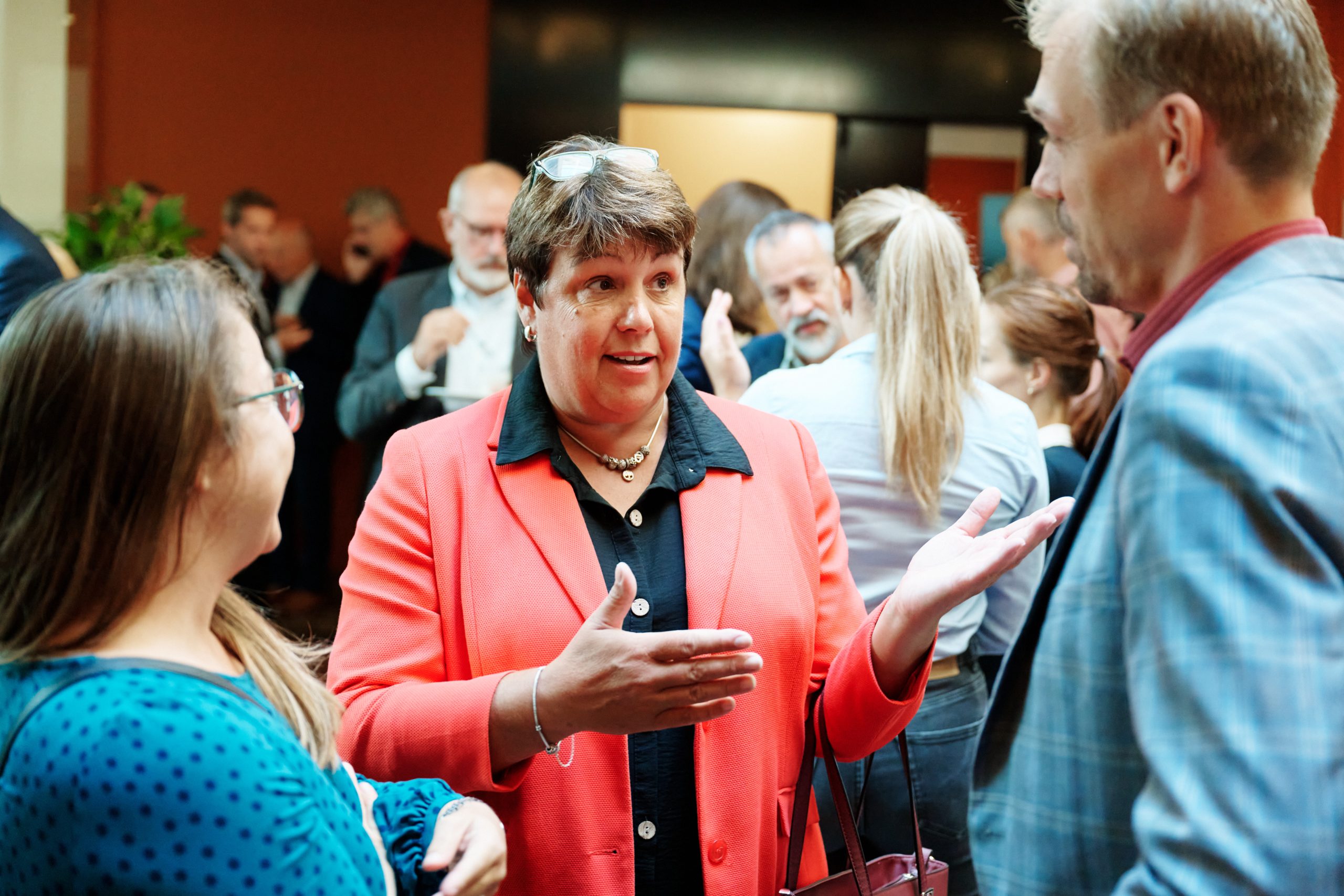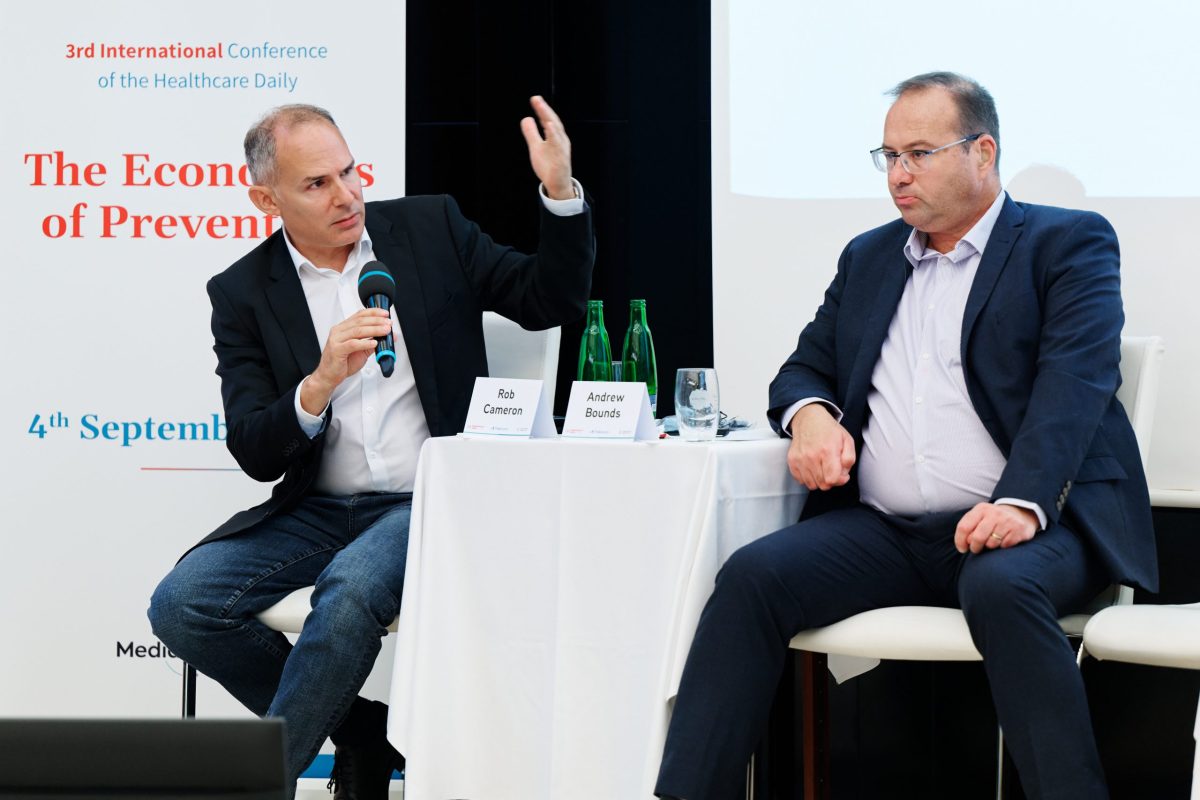„Everyone has a right to their opinion but when it comes to health, which is literally a matter of life and death, there is a difference between an opinion and a fact,“ said journalists from major and renowned European media at the Healthcare Daily’s Economics of Prevention conference which was also attended by politicians, an anti-drug expert and an athlete. Together, they tried to find answers to the questions of how to find strong topics and authorities, how to avoid misinformation or where the Czech mainstream media is slightly behind the European best.
The mainstream media remains a pillar for obtaining and disseminating truthful information. This is true today and it was true in the past, said Andrew Bounds, editor of The Financial Times, who writes about health policies in Brussels. “When covid vaccines came along, media generally supported the campaign and the message that the vaccination was the right way to go and it was the way out of it. There were inevitably casualties from the vaccine program, and there were cases of people who were damaged by the vaccines, but overall it was a net gain of lives saved,” he gave an example where the media played a positive role.
Bounds also warned against misinformation that has recently flooded social media and which many powerful politicians with great influence have come to believe. „But this is not a new phenomenon, before monarchs believed such news, today some politicians believe some of these things. Donald Trump, as President of the United States, famously recommended injecting bleach as a prevention against coronavirus… And we see it across Europe now as well, more and more political leaders sometimes put out misinformation and incorrect science. And it is a challenge for the mainstream media because our job is to report what important people say. We have to reflect on how we do even better job of fact-checking.”
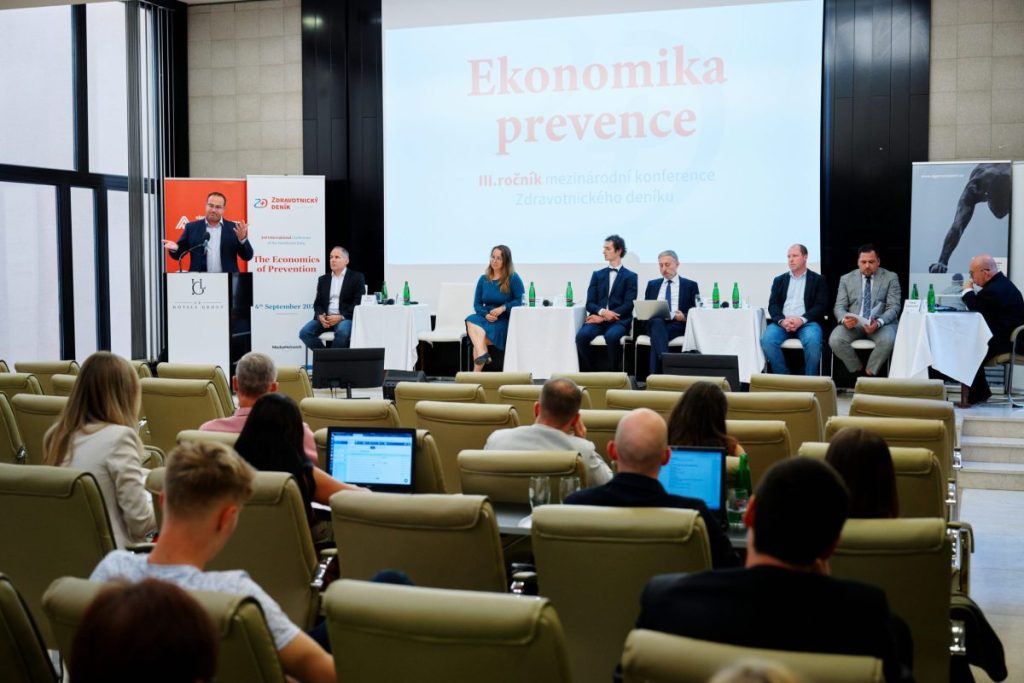
“Many of us grew up in a media tradition of not taking sides, just reporting and the reader decides. But when the balances are tilted, it’s very hard to do that. We lost trust in politicians,” said Bounds. He cited the example of former British Prime Minister Boris Johnson. „He was giving out advice he wasn’t prepared to take himself. He had endless parties and gatherings in the Downing Street while the rest of the country was unable to visit a sick relative, or even go to a funeral,” explained the editor of The Financial Times.
How to find authority
“People crave curated information that was vetted by someone in position of authority. Obviously everyone has a right to their opinion but when it comes to health, which is literally a matter of life and death, there is a difference between an opinion and a fact,” said Rob Cameron, BBC correspondent for the Czech Republic and Slovakia. He also agreed with the opinion of his fellow speaker. „The mainstream media has a very special role to play,“ Cameron said.

Jan Lopatka, the chief correspondent for Thomson Reuters, considers the search for who a journalist should consider an authority to be crucial. And what, in his view, is such a recipe for experts in the health sector? „To be guided by whether the expert actually comes from a field of medicine that is relevant to that… So we’re not going to ask a plastic surgeon – even though he’s a doctor – about infectious diseases,“ Lopatka said. He cited the coronavirus pandemic as an example, where many doctors whose specialty was not related to coronavirus and yet were highly visible in the media and public space in general commented on the epidemiological situation. The recipe for accurate reporting, he said, is to be as close to the problem as possible – asking questions, for example, in those health facilities most affected by it, in addition to selecting relevant enough respondents.
National anti-drug coordinator Jindřich Vobořil also brought an interesting perspective to the discussion. „It was very evident during the covid pandemic how much emphasis we put on the opinions of authorities from university departments and university laboratories. And I don’t think that a university professor is the highest authority when it comes to practical measures,“ Vobořil said. He added an example. „Nobody took any notice of the fact that 40 percent of the people who died of covid were people in nursing homes, but they are only three percent of the population. And when we as NGO people who worked with these elderly people pointed this out, none of the university experts listened to us. So we have made the necessary arrangements in Brno as early as the summer of 2020. And if you look at the statistics, you will see that only one person died in those homes,“ Vobořil said.
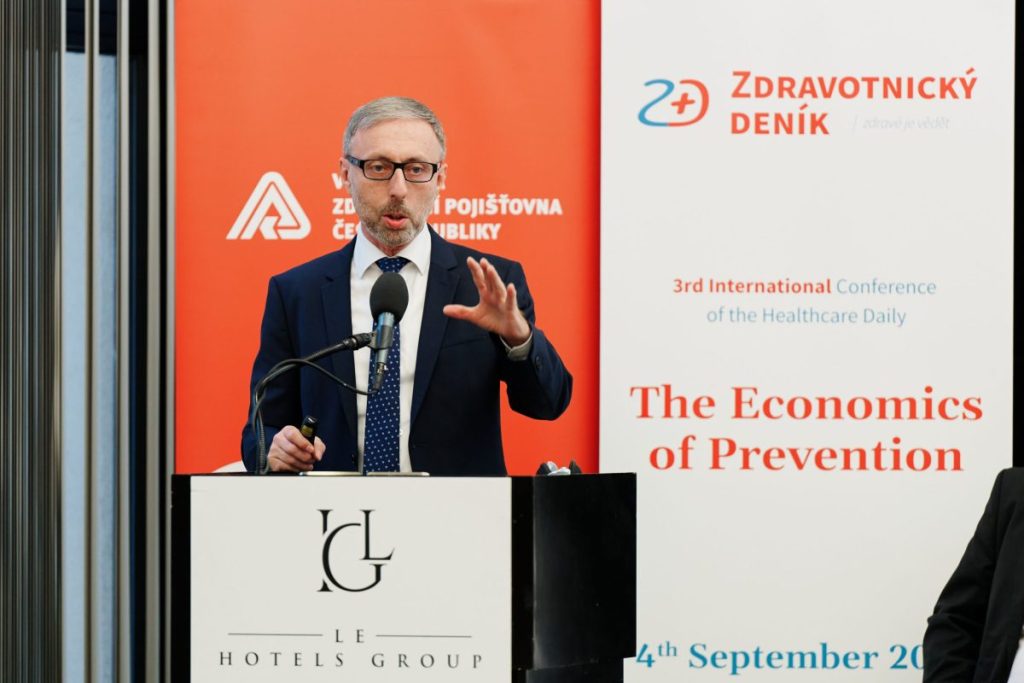
Courage to raise unpopular topics
MEP Tomáš Zdechovský (KDU-ČSL) mentioned in connection with health topics that people like headlines that evoke emotions and often simplify complex topics. He appreciated that big European media such as Reuters, BBC, The Financial Times or Politico do not fall for this „headline agenda“. „The European media go deep into analysis and have long been covering serious topics that most Czech media do not offer. For example, the topic of mental health has already been covered by the European media twenty or thirty times. This is a completely fundamental topic – we all have a problem, we all feel unwell at times, we all have someone in our family who has been treated somewhere. But it’s just not talked about. And I think we politicians should have the courage to bring up topics and be able to talk about topics that are unpopular,“ Zdechovský said at the conference.
Adam Ondra, a rock climber and four-time Olympic world champion, also subjected the domestic media to light criticism. „Maybe I perceive some small differences. I have given a few interviews to the world’s biggest media and I always perceived great professionalism in the sense that exactly what I said came out. While I have several experiences with Czech media that the result was not exactly what I said and then I had to change it during some authorizations,“ Ondra said.
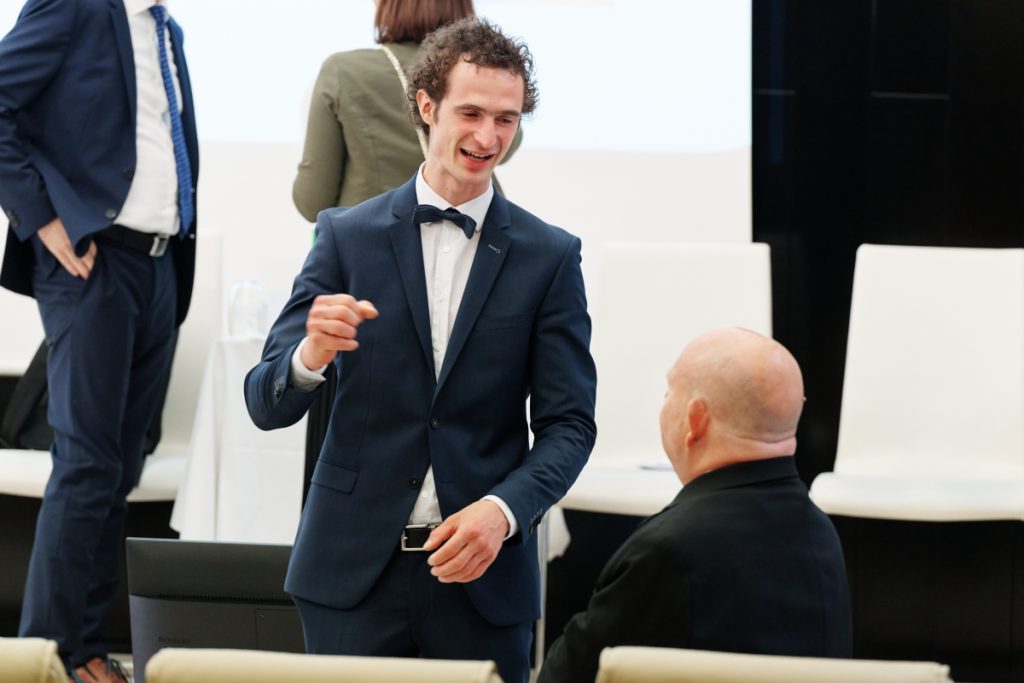
According to Ondra, in addition to the media, athletes also play a role in prevention. „If we athletes should have another mission, it is to tell the public: do sport and be active to be healthy. But to show that it’s not such a chore, it’s a joy that brings a lot of benefits,“ Ondra said.
Strong story and attractive presentation
At the end of the discussion, another interesting question came up: What should someone from the public health sector do if they wanted to get „their“ topic into a reputable European media outlet through which they wanted to reach the public?
According to Andrew Bounds, the key is to come up with a strong story that has the potential to make the news. And ideally a local story. „For example, in the UK, we found that there were big budget cuts in public health care as a result of covid,“ he said.
Mohlo by vás zaujímať
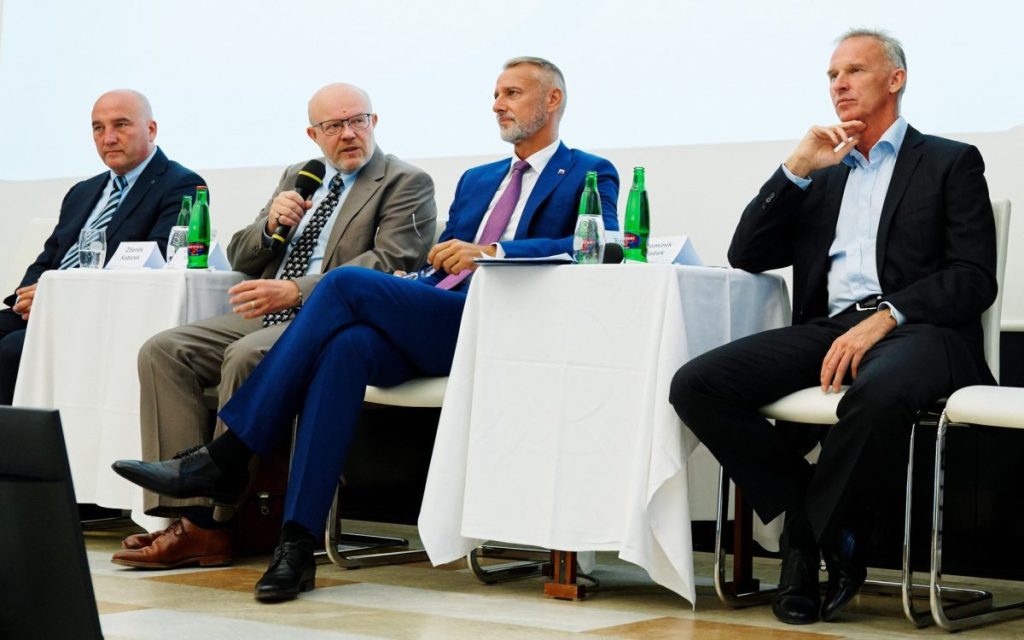
Another, equally important aspect was mentioned by Rob Cameron when he stressed the importance of presenting the topic in the media. „The main obstacle to getting the message across is poor presentation. I think this is a common sin in the Czech Republic, when a government, a ministry or a public office wants to communicate something, I often see big differences between the final visual campaign compared to similar campaigns in the UK or the US,“ Cameron pointed out. The ideal, he said, is to keep the message as simple to understand as possible, supported by attractive graphics.
Jan Lopatka also fully agreed with this. „If there is already some political consensus on what to say, then simple and clear communication works, but it will be consistent, ideally from different ministries and preferably in agreement with the opposition so that it does not change again,“ Lopatka explained. He added that simply worded international comparisons, such as the number of smokers, are effective.
Jakub Němec
Photo by Radek Čepelák
We would like to thank the General Health Insurance Company, National Sports Agency, RBP, Health Insurance Company of the Ministry of Interior of the Czech Republic, Military Health Insurance Company, EUC Medical Group and Sprinx for their support of the conference.
